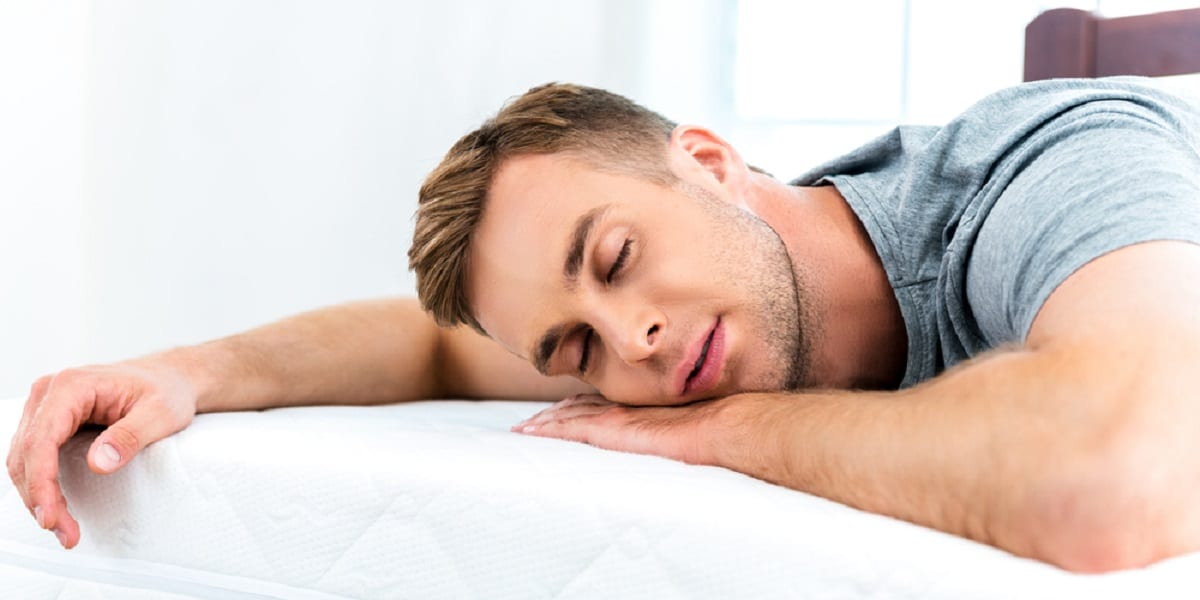
Can sleeping without a pillow improve your sleep? Read the article and learn about its advantages and disadvantages.
People like to sleep differently. Some find that a big comfy pillow is great for them, while others prefer to sleep without any. It’s hard to say which is best because, for different people, the answer may vary. However, if you often have back or neck pain after sleep, it’s time to change your habits. Maybe, in your case, sleeping without a pillow is the right decision. There are both advantages and disadvantages of such sleep. Read on and get to know if you can benefit from sleeping without a pillow.
Sleep and Posture Basics
When people invented a pillow, the main aim wasn’t just comfort. Pillows keep the head aligned with the backbone and neck. If the spine and neck are in a neutral position, people sleep well and have fewer chances to wake up. On the contrary, if the alignment is bad, a person may experience back and neck pain along with a poor quality of sleep.
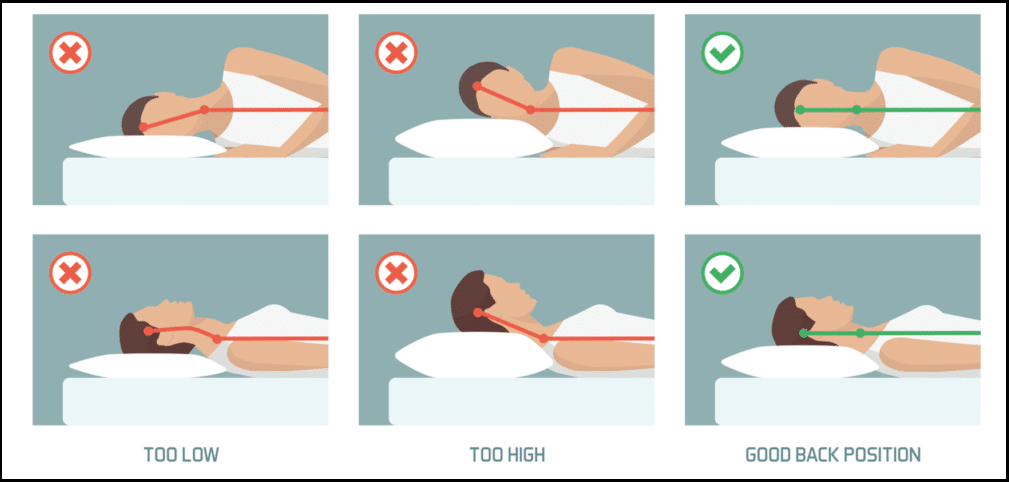
The National Sleep Foundation says that keeping your head in a neutral position is best for your health. It shouldn’t be too far forward or too far back. The neck shouldn't have a curve. When the head is in an uncomfortable position, it may lead to pains and aches during the day.
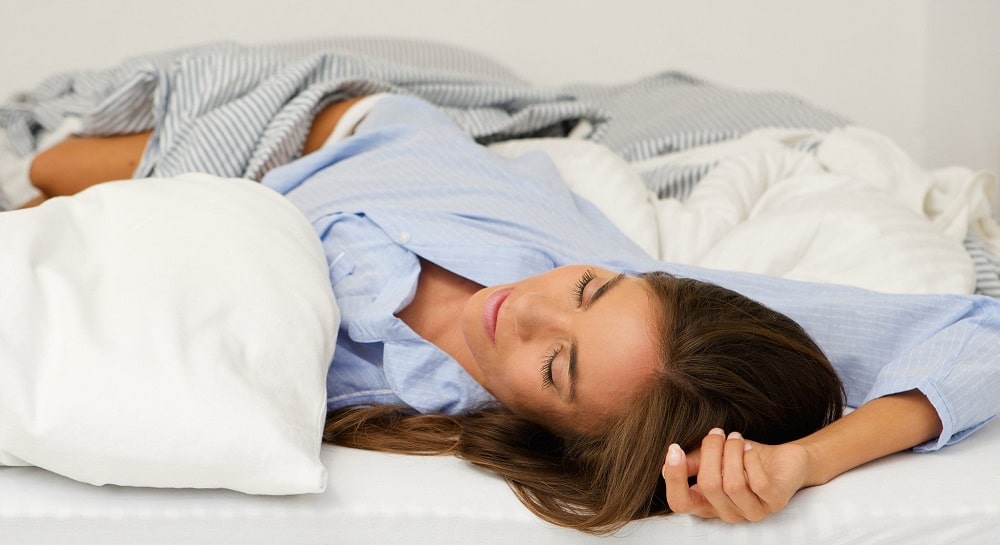
That is why, for some sleep positions, you need a pillow to maintain a neutral spine, neck, and head alignment. Of course, while sleeping, we frequently change the position because we dream, toss, and turn. Still, to decide whether to sleep without a pillow, you need to observe your ways of sleeping. Observe the positions in which you fall asleep and wake up. It will help you to figure out your main sleeping position. Read below to find out which groups of people will benefit from sleeping without a pillow.
Reasons to Sleep Without Pillow
Keep spine, neck, and back alignment
Indeed, sleeping without a pillow improves back, neck, and head alignment. However, this isn’t true for all sleepers.
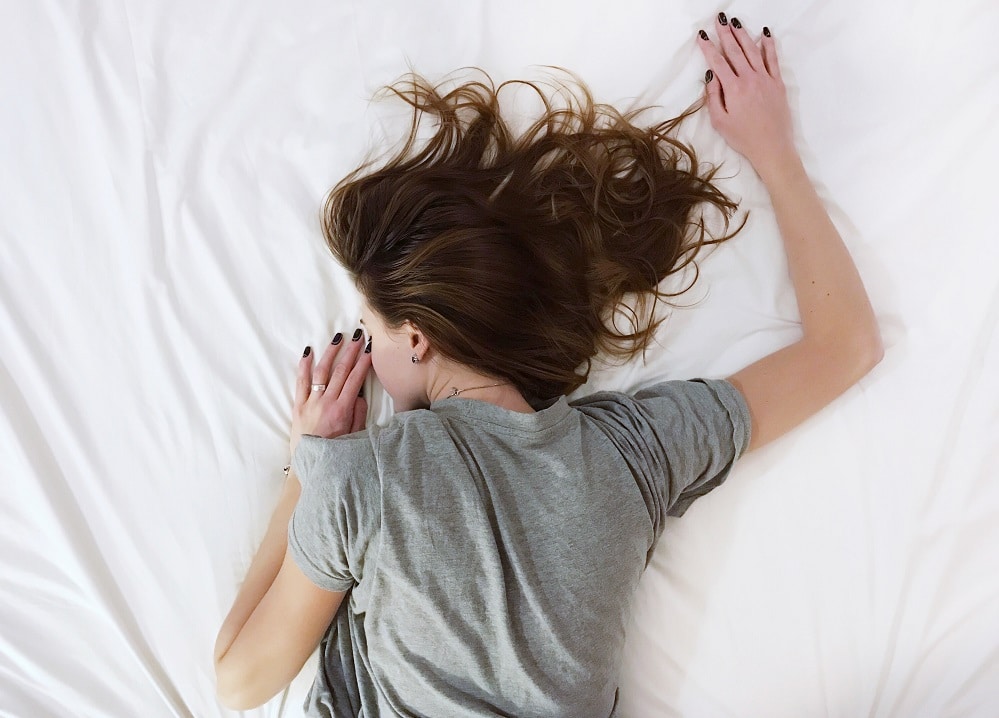
If you sleep on your stomach, sleeping without a pillow is a good idea. This way, your spine is close to a natural position. When you sleep with a pillow, most of your weight shifts to the middle of your body. This position causes more stress on the neck and back. The spine gets an unnatural curve so you may feel sore back and neck in the morning. Sleeping without a pillow reduces stress on your neck and keeps your head flat, which is better for you.
However, if you sleep on your side or back, sleeping without a pillow may be bad for you. When you sleep without a pillow, the spine loses its neutral position, which leads to spine and back problems.
No back or neck pain
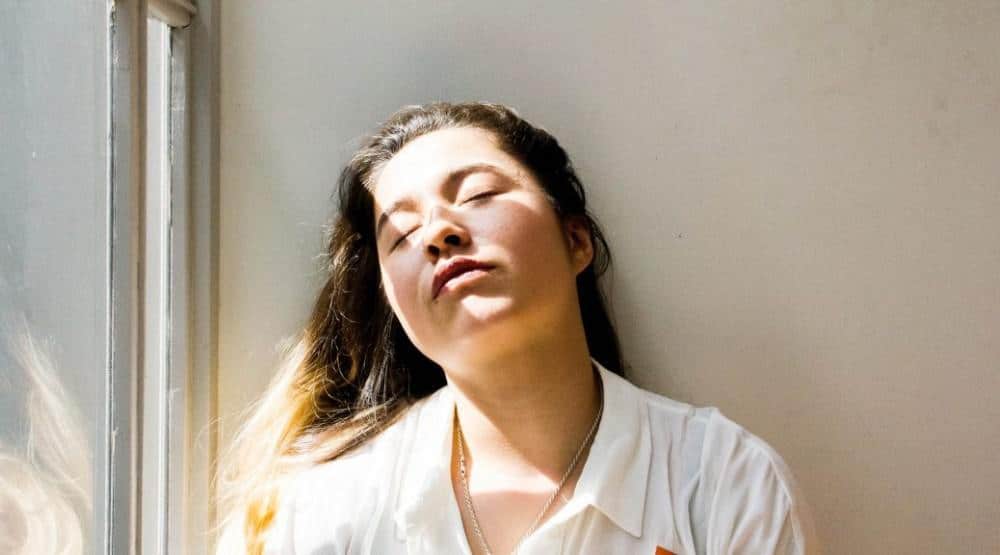
If you sleep on the stomach, sleeping without a pillow will alleviate back pain. In this position, your head turns to the side. The neck extends backward, so a pillow adds to discomfort and pain, putting the neck at the awkward angle. Sleeping without a pillow will minimize the angle and ensure a healthier back and neck.
Fewer wrinkles
Pillows compress the skin when you sleep. If you sleep on the side, you have higher chances of forming sleep wrinkles, which cause visible signs of aging.
When you sleep without a pillow, you don’t scrunch up your face at night. Still, for people who sleep on their side, a pillow is recommended. You can reduce aging effects by eating a healthy diet, avoiding UV rays, and moisturizing your skin daily.
Disadvantages of Sleeping Without Pillow
Bad posture
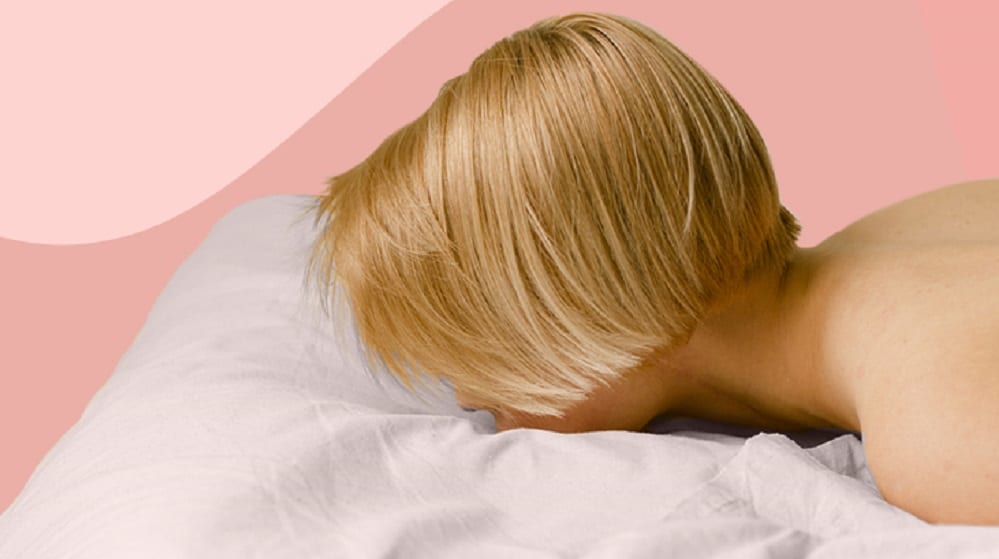
When you sleep on your stomach, sleeping without a pillow is generally good for you. Still, there are some problems left. The spine is in an unnatural position. As the weight is at the center of the body, putting a pillow under your pelvis and stomach is best. This measure lifts the middle of your body, which decreases pressure on your spine.
Neck pain

Even if you sleep on your stomach, throwing out the pillow may be a bad idea for your spine. Some adverse effects will stay, and some people experience neck pain because you have to turn your head. This position strains the neck muscles and joints, which might cause soreness.
How to Start Sleeping Without Pillow
So, you’ve decided that sleeping without a pillow will benefit you. But how should you do it? Putting the pillow away without preparation is a bad idea. Here is some advice on how to start sleeping without a pillow and avoid discomfort.

Make your pillow thinner
Do not remove your pillow immediately. First, start with a lower pillow, folded towel, or blanket. You can unfold the towel when you’re ready to lower your head position.
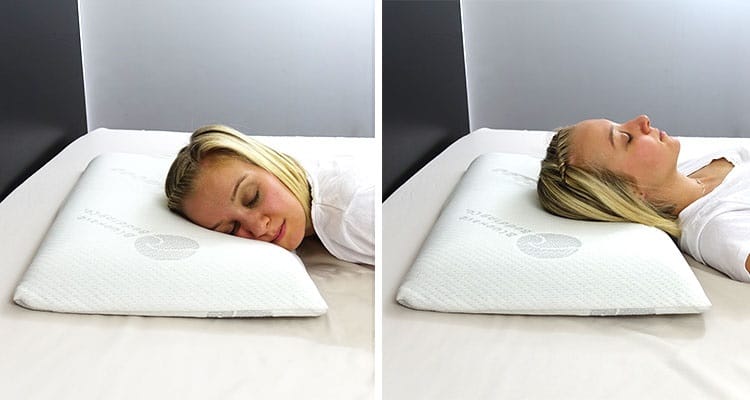
Choose a good mattress
It should provide enough support for your body and head. If the mattress is soft, it will let the spine sag, which will cause back pain.
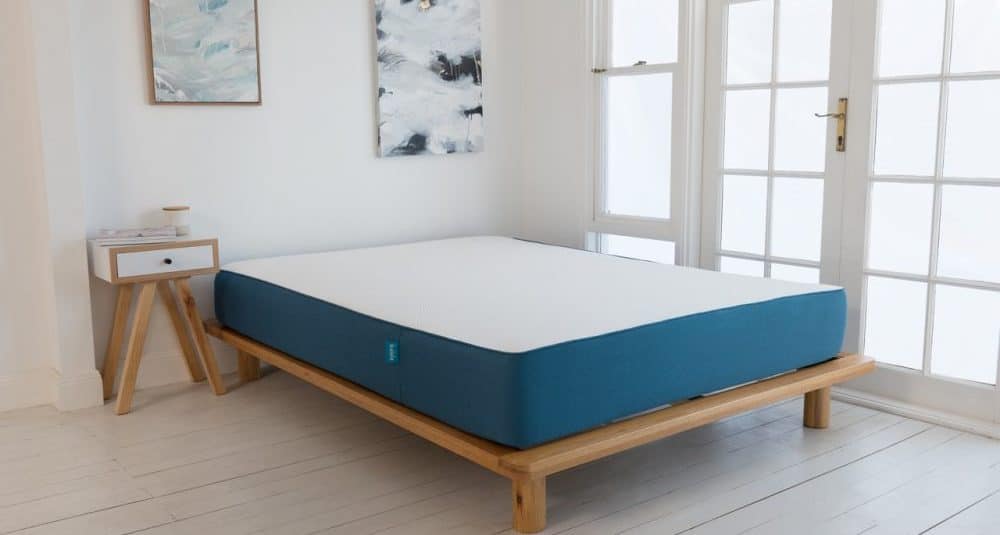
Put the pillows under the rest of your body
Place a thin pillow under the stomach to release spine strain.
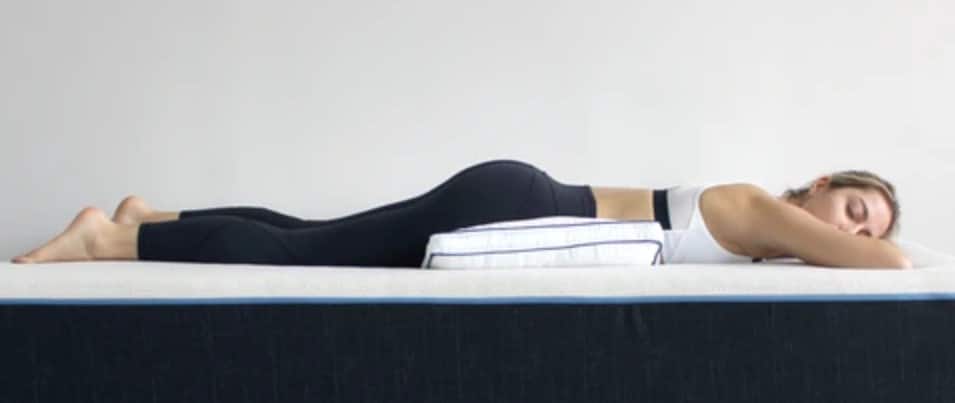
How to Improve My Sleep?
For back sleepers
The head is one of the heaviest parts of the body, so when we sleep, the spine and neck strain to support that weight. So, doctors recommend sleeping with a pillow to minimize the amount of weight put on the neck and spine.
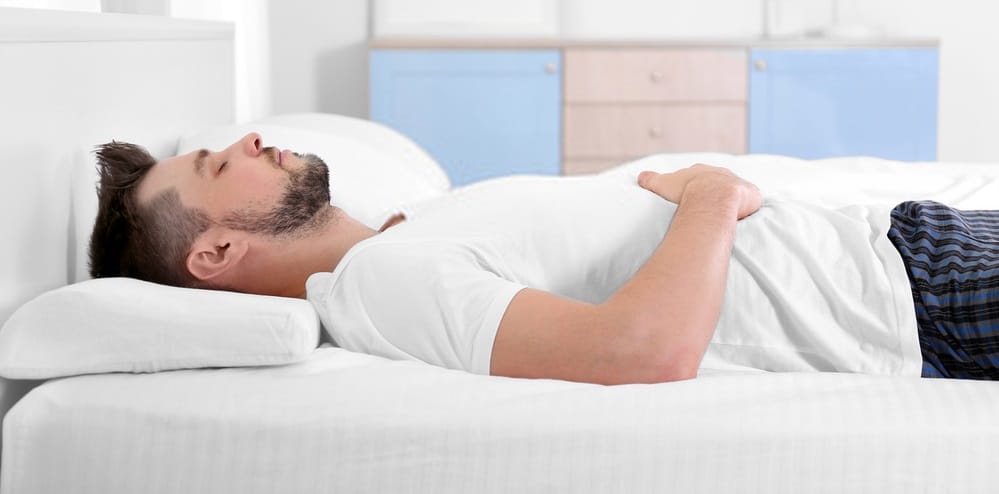
If you sleep on the back, a thinner pillow will benefit you. It won’t let your head lean too far forward. Using a memory foam filling will be the best option. Also, a pillow with a thinner middle part and thicker bottom will be perfect for your neck because it keeps the spine aligned. Also, put another pillow under your knees to minimize pressure on the lower back.
For stomach sleepers
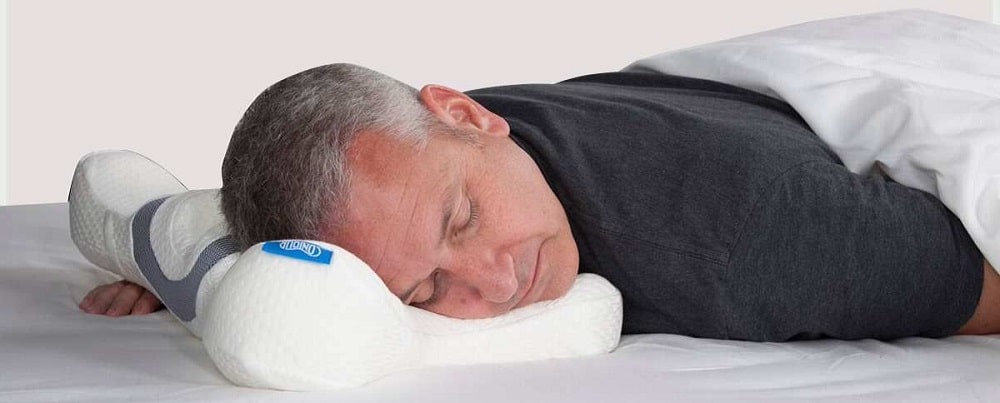
Of course, sleeping without a pillow may be the best option for you. Still, if you opt for a pillow, choose a thin one. It will reduce the stress on the neck. Try to sleep on the side – it is healthier. Hugging a large body pillow may help you adjust.
For side sleepers
Doctors say that sleeping on the side is the healthiest position. The left side is the most beneficial. Sleeping on the side minimizes acid reflux and is good for digestion. Also, your lungs get the maximum amount of air, which reduces snoring.
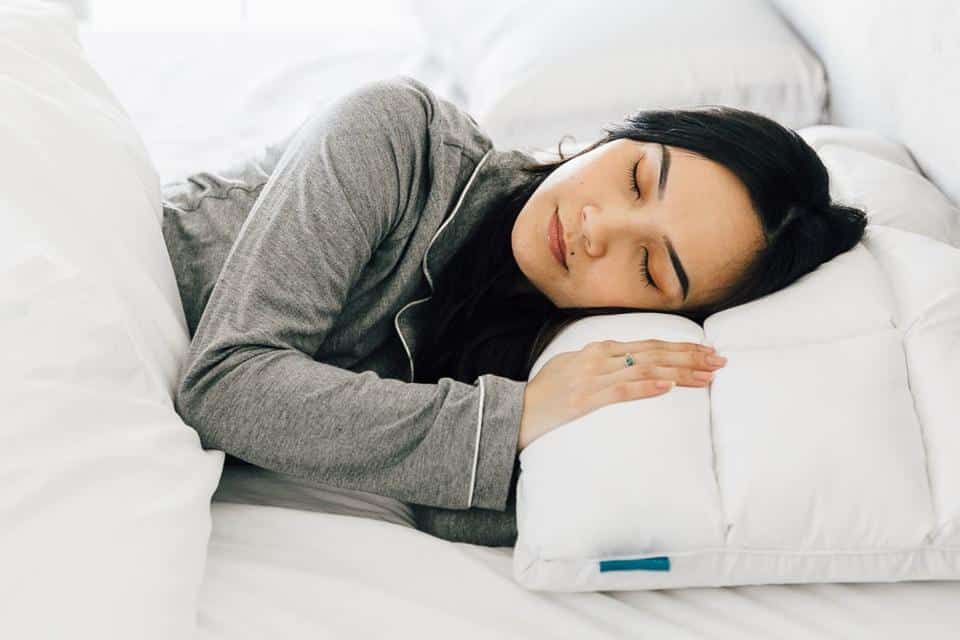
When the side sleeper has no pillow, there’s a gap between the neck and shoulders. That is why choosing a firm pillow is best for side sleepers. It should also have extra depth because it keeps the distance between the ear and the shoulder. It also supports the head alignment, which reduces neck and back pain, as well as headaches. To add, sleep with a pillow between your knees, as it helps the spine.
Which Pillows Are the Best?
A pillow is vital for your good sleep. Even if you have the best mattress, a bad ill-fitting pillow can ruin all the benefits. Research says that too thick pillows are detrimental to your alignment, as well as multiple pillows. Today, there exists a variety of pillows that are good for you. Read the possible options below.
Memory foam pillows
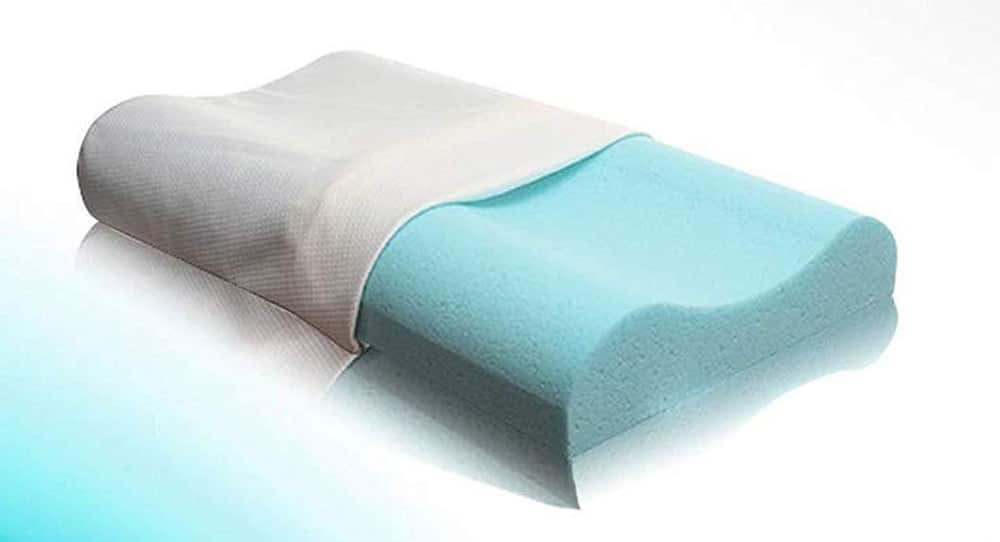
Around the world, experts say that memory foam pillows are best for your sleep. They give your parts of the body just the right amount of support, no matter which kind of sleep you prefer. The foam “remembers” the position you usually sleep in and keeps it the whole night. Of course, this is good for your neck, spine, and head.
Hollow fiber pillows
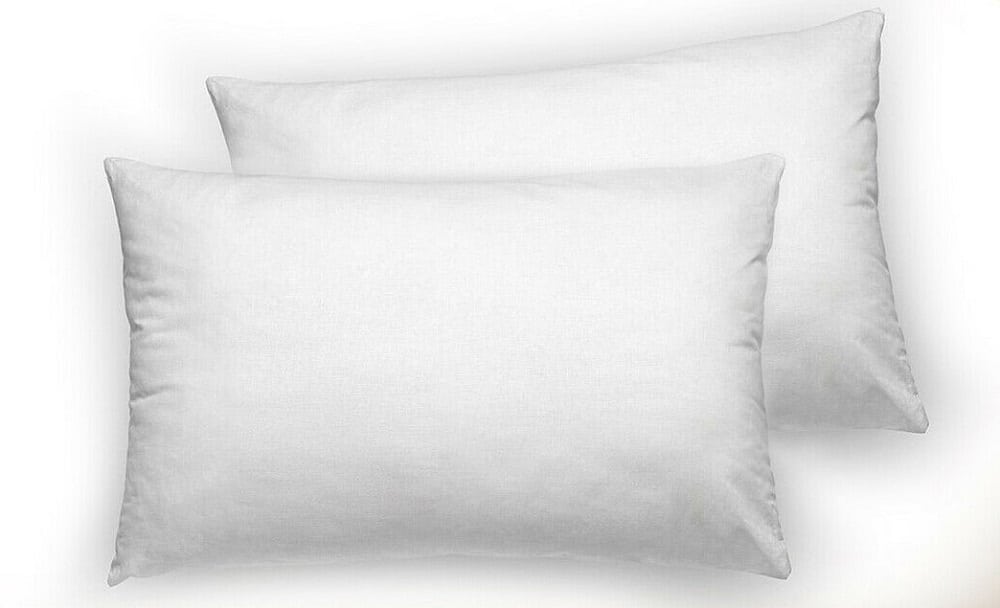
Such pillows are a blend of spring-like hollow fibers and classic polyester. Due to this filling, they adjust to the shape of your head and support it when you sleep.
Feather and down pillows
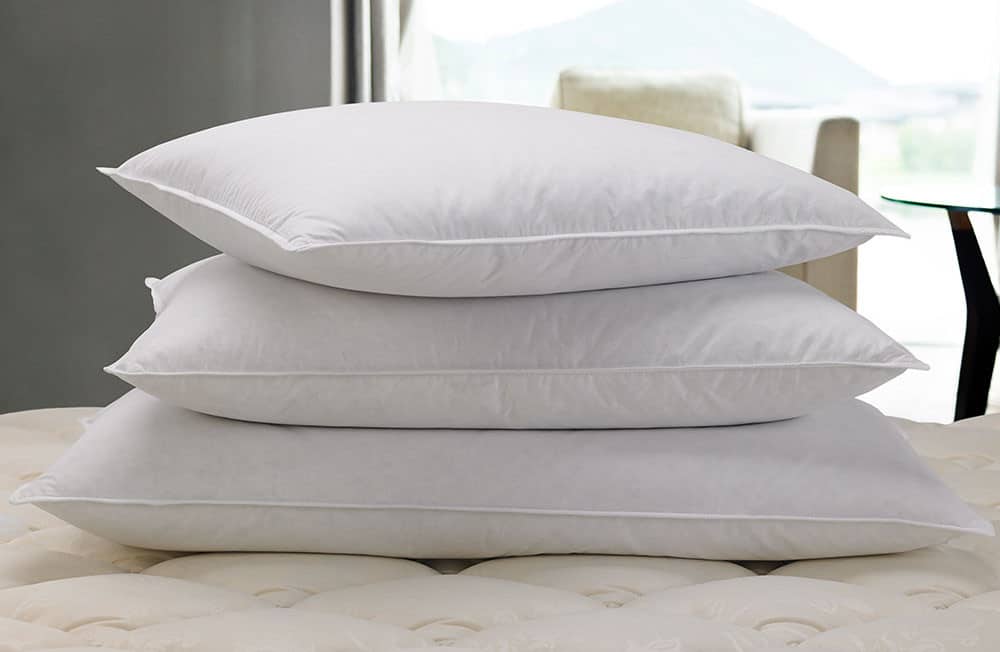
Typically, they contain duck feathers and duck down (fluffy feathers from the chest). Usually, they have cotton covers, which altogether makes a light and soft pillow.
Wool pillows
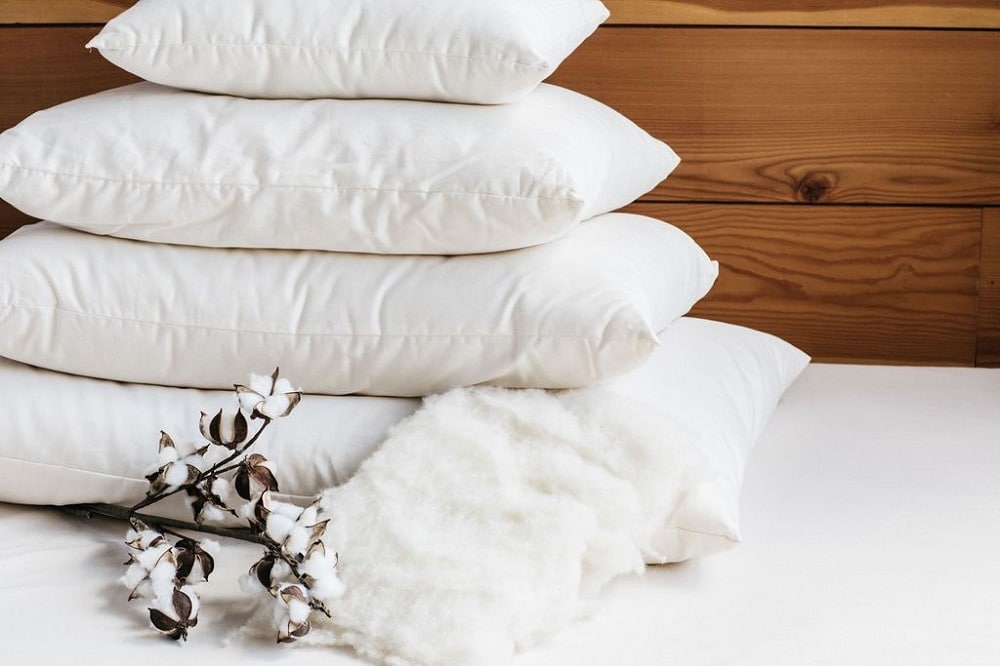
These pillows are from thick natural fibers. They offer firm support, so they will fit side sleepers. Wool pillows are breathable, organic, and hypoallergenic.
ActiGel pillows
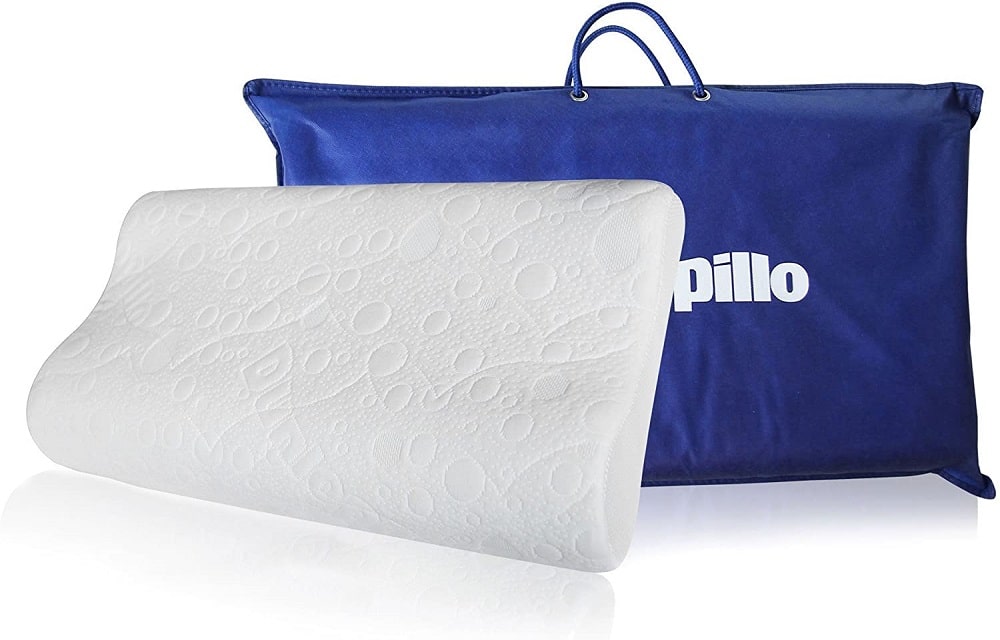
Such pillows have a layer of actigel and special breathable materials. They also have the name “cool pillows” because they maintain the correct temperature while you sleep.
Anti-allergy pillows
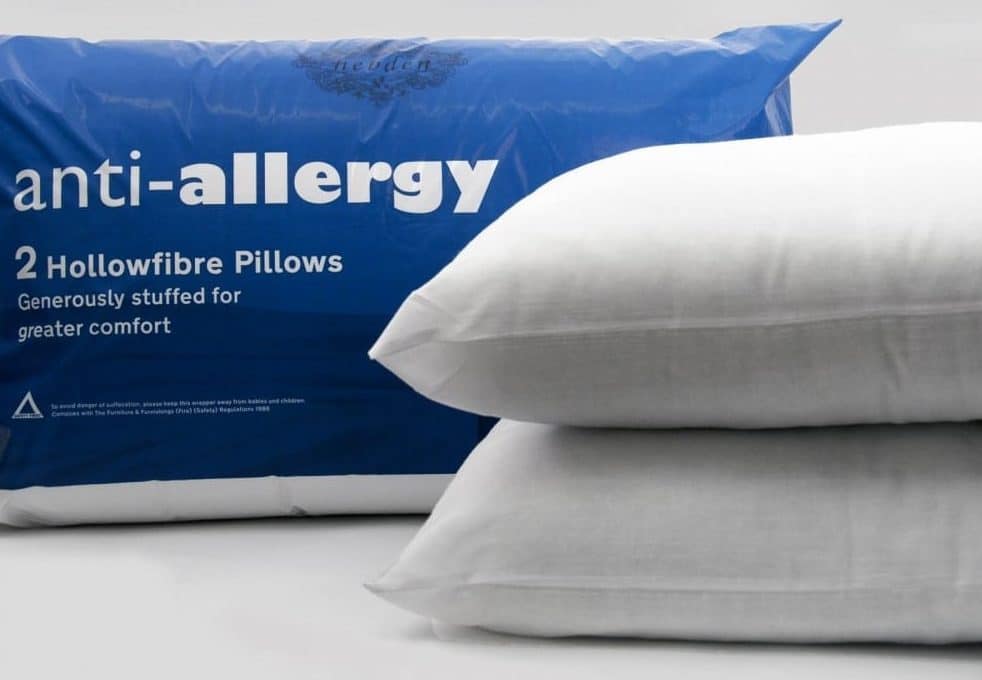
These pillows help to fight allergens. House dust mites can cause allergies, so if you are prone to them, be sure to choose these pillows. If you have sensitive skin, consider these too.
Conclusion
Sleeping without a pillow is healthy and necessary for certain types of sleepers. If you sleep on your stomach, remove a pillow to have a better back, spine, and head alignment. However, if you sleep on your side, do not try this. In this case, choose a hard pillow that has extra depth. Back sleepers should opt for a soft, thin pillow to maintain their back alignment. Also, choosing a good pillow is vital, so consider the most widespread materials to help your sleep.










